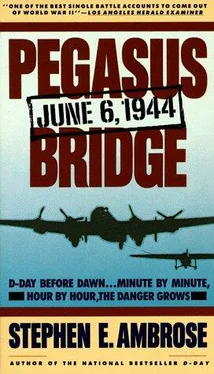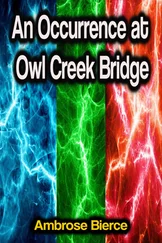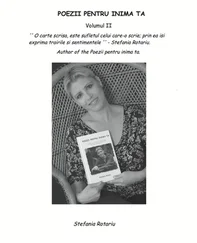Stephen Ambrose - Pegasus Bridge
Здесь есть возможность читать онлайн «Stephen Ambrose - Pegasus Bridge» весь текст электронной книги совершенно бесплатно (целиком полную версию без сокращений). В некоторых случаях можно слушать аудио, скачать через торрент в формате fb2 и присутствует краткое содержание. Жанр: История, на английском языке. Описание произведения, (предисловие) а так же отзывы посетителей доступны на портале библиотеки ЛибКат.
- Название:Pegasus Bridge
- Автор:
- Жанр:
- Год:неизвестен
- ISBN:нет данных
- Рейтинг книги:5 / 5. Голосов: 1
-
Избранное:Добавить в избранное
- Отзывы:
-
Ваша оценка:
- 100
- 1
- 2
- 3
- 4
- 5
Pegasus Bridge: краткое содержание, описание и аннотация
Предлагаем к чтению аннотацию, описание, краткое содержание или предисловие (зависит от того, что написал сам автор книги «Pegasus Bridge»). Если вы не нашли необходимую информацию о книге — напишите в комментариях, мы постараемся отыскать её.
Pegasus Bridge — читать онлайн бесплатно полную книгу (весь текст) целиком
Ниже представлен текст книги, разбитый по страницам. Система сохранения места последней прочитанной страницы, позволяет с удобством читать онлайн бесплатно книгу «Pegasus Bridge», без необходимости каждый раз заново искать на чём Вы остановились. Поставьте закладку, и сможете в любой момент перейти на страницу, на которой закончили чтение.
Интервал:
Закладка:
Howard briefed the men over and over, by sections and by platoons. He encouraged them to go into the hut whenever they wished, examine the maps and the photographs and the model, and talk among themselves about their particular tasks.
On May 29, he called the reinforced company together and issued escape aids, 'very Boy Scoutish things', Howard says. They included a metal file to be sewn into the battle smock, a brass pants button that had been magnetised, so that when balanced on a pin-head it became a tiny compass, a silk scarf with the map of France on it, water-purifying tablets, and French francs. 'This sort of thing absolutely thrilled the troops to bits', Howard recalls: 'I have never seen such enthusiasm about such simple things like that'. Billy Gray remembers that all the French money was gambled away in two hours.
All the officers were issued with more sophisticated escape wallets. They included large wads of French francs, which were all conveniently 'lost in battle'. Howard says he lost his francs playing poker with a popular Army Padre.
That night, in Normandy, von Luck was conducting exercises, designed to counter any landing, even commando, by an immediate counter-attack. That day. Major Schmidt received a shipment of slave labourers from the Todt Organization and put them to work digging holes for anti-glider poles, in what he figured were the most likely LZs for gliders. He began with the areas around his bridges. The poles themselves had not yet arrived, but were expected daily.
On May 30, when Howard and all of D Company saw the photographic evidence of the holes, their first reaction was that somehow the great secret had got out, that the Germans knew where they were coming. Kindersley came down to visit Howard, guessing correctly that Howard would be in a blue mood. 'I know about those photographs', he began, 'but there is nothing to worry about'. Howard voiced his fear: all those photographs taken by the RAF for the movie for the pilots, all those photographs each morning, surely the Germans must have figured out that the bridges were to be attacked because of all the reconnaissance activity. Kindersley laughed encouragingly. 'John', he said, 'we're taking similar photographs of every bridge or target between the Bay of Biscay and Dunkirk'.
That relieved one worry. Howard went to Wallwork with the other worry. 'Supposing the poles are put into the holes before we land? What will our chances be?'
'That's just what we want, sir', Wallwork answered.
'What do you mean? What can you mean?' Howard asked.
Wallwork explained that the gliders would be overloaded, flying into a narrow field with an embankment at one end. They would be landing in the direction of the embankment, and Wallwork was worried about hitting that. He continued, 'Now, those poles will take something off one wing, and something off the other wing - it's just damned cheap plywood, you know -and will pull us up absolutely beautifully'.
Howard's face brightened. 'Right', he said, 'well, let's get the company on parade'. He called the men together, let them mumble and rumble awhile as they studied the aerial photographs, mostly about those holes, then explained to them what the Brigadier had told him about photographing everywhere, not just their bridges, and then asked Wallwork to tell ..he company what he had just said about the poles being exactly what was needed. Wallwork did so, and the men were satisfied.
'Put it down to ignorance', Wally Parr explains, 'call it what you like, we could see the situation. But Johnny Howard said it could be done and Wallwork said we could do it and that was the end of the subject. If Johnny Howard said we could do it, we could do it.'
Besides the poles, Wallwork had to worry about Howard's request that he break through the barbed wire with the nose of his Horsa, a difficult enough task with an unloaded glider in daylight on a runway. And his glider - all the gliders - was badly overloaded, with thirty or thirty-one men in each, plus ammunition. There were also two canvas assault boats per glider. The sappers had heavy equipment. The men were carrying up to twenty pounds more ammunition each than had been allotted, and still were trying to add more to their load.
Wallwork told Howard that the extra weight would increase air speed, and thus landing speed. They would need a longer landing area than was available. Howard told Captain Neilson of the Royal Engineers to get rid of some weight by dropping off one sapper per glider, but Neilson convinced Howard that he absolutely had to have all his sappers. Howard removed one boat from each glider. Not enough, Wallwork told him. Six hundred more pounds per glider had to go.
Howard reluctantly made his decision. Two privates from each platoon would have to drop out. It was a 'terrible decision', he recalls. He gave it to his platoon commanders and told them to select the men to be left behind. In Brotheridge's platoon, Billy Gray says, 'We all started shouting, "Parr's married, let Parr drop out. Let's get rid of Parr!" And Wally immediately did his nut, and he was allowed to stay.'
The lieutenants made the choices. The next day, Howard says, 'I had men asking to see me at company office and crying their eyes out; a big, tough, bloody airborne soldier crying his eyes out asking not to be left behind. It was an awful moment for them.'
At one of his briefings, Howard had as usual asked for questions. 'Sir', someone piped up, 'can't we have a doctor. We are going in on our own and all.' Howard thought that an excellent idea, asked Poett if he could get a volunteer from the divisional medical staff, and John Vaughan, an PAMC captain, came to join D Company. That meant another private had to be bumped, but fortunately, a soldier in Smith's platoon had sprained his ankle playing football.
Vaughan has a nice anecdote to illustrate Howard's exuberance in the last days before the invasion. On May 31 Vaughan and Howard drove to Broadmoor, Howard driving much too fast as he always did. When they arrived, who should be standing there as Howard screeched the brakes, but Brigadier Poett. Howard leaped out of the jeep, did a full somersault, and came down directly in front of Poett. He snapped into attention, gave a full and quite grand salute, and shouted, 'Sir!'
That same night. Smith and Fox sneaked out of Tarrant Rushton (neither of them can recall how they managed it) to have dinner in a local hotel with their girlfriends (both remember the meal and the girls vividly).
That evening, Wallwork and the other pilots were given a special set of orders. These said that the bearer was not responsible to anyone, that he was to be returned to the UK by the most expeditious means, and that this order overruled all other orders. It was signed by General Montgomery himself. Poett also told Howard privately, 'Whatever you do, John, don't let those pilots get into combat. They are much too valuable to be wasted. Get them back here.'
On June 3, Howard got his last intelligence report. Major Schmidt had completed his defences; his trenches along the canal bank were done, as was the pillbox, and the anti-tank gun was in place. The garrison consisted of about fifty men, armed with four to six light machine-guns, one anti-aircraft machine-gun, an anti-tank gun, and a heavy machine-gun in its own pillbox. A maze of tunnels connected the underground bunkers and the fighting posts. More buildings had been torn down to open fields of fire. The anti-glider poles appeared to have arrived, but were not in place yet.
That same day, Monty himself came through Tarrant Rushton. He asked to see the gliders and John Howard. He wanted to know if Major Howard thought he could pull off the coup de main, and he was obviously acquainted with details of the operation. Howard assured him that the job would be done. Monty's parting remark was, 'Get as many of the chaps back as you can'.
Читать дальшеИнтервал:
Закладка:
Похожие книги на «Pegasus Bridge»
Представляем Вашему вниманию похожие книги на «Pegasus Bridge» списком для выбора. Мы отобрали схожую по названию и смыслу литературу в надежде предоставить читателям больше вариантов отыскать новые, интересные, ещё непрочитанные произведения.
Обсуждение, отзывы о книге «Pegasus Bridge» и просто собственные мнения читателей. Оставьте ваши комментарии, напишите, что Вы думаете о произведении, его смысле или главных героях. Укажите что конкретно понравилось, а что нет, и почему Вы так считаете.




![Stephen Ambrose - Citizen Soldiers [Condensed]](/books/346737/stephen-ambrose-citizen-soldiers-condensed-thumb.webp)




